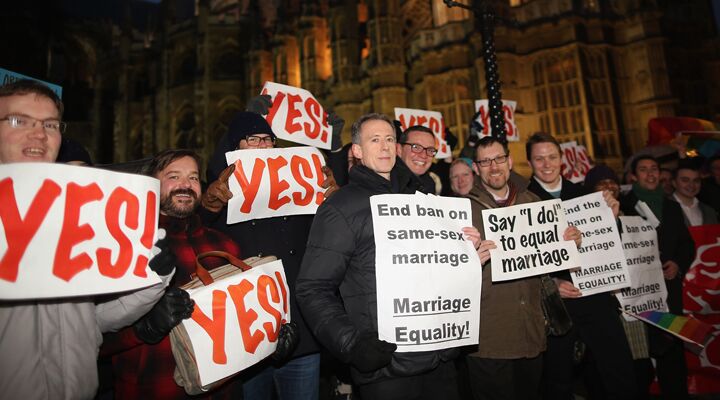
What’s Missing in Britain’s Same-Sex ‘Marriage’ Debate
What does it take to unite the leadership of all three of Britain’s major parties? There was no raucous debate between Conservative and Labor ministers in Britain’s Parliament, February 5. Why? The subject under discussion was homosexual “marriage.”
The bill passed through its second reading 400 votes to 175—meaning it is well on its way to becoming law. Homosexuals will soon be allowed to marry in the UK—at least according to man’s laws.
The only real opposition came from back benchers—party members without any real leadership role. But even in their arguments, there was some vital information completely absent from the debate.
Those for same-sex “marriage” talked about allowing two people that love each other to demonstrate that commitment. This legislation is being put forward under a Conservative prime minister, though more Conservatives voted against the bill than for it. Prime Minister David Cameron supports this, he says, because he views marriage as a good thing, and so wants to allow homosexuals to join in.
But what was most surprising was the weakness of the arguments against same-sex “marriage.” Here’s a summary of the arguments most often brought up against it:
Few, if any, said that homosexual “marriage” was wrong, or impossible. None said homosexuality itself was wrong. Few talked about the effect this would have on British society.
The fact is that those on both sides of the argument are completely ignorant of the purpose of marriage. It is not a man-made institution that governments can change on a whim.
There are commonsense reasons for opposing “homosexual marriage.” But even those speaking out against it don’t understand the God-ordained purpose for marriage. But you can. Read our free booklet Why Marriage—Soon Obsolete?
